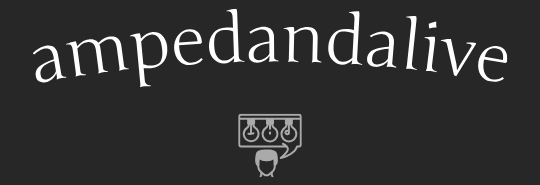All About Visual Arts: A Window into Creativity
Visual arts encompass a vast and diverse realm of artistic expression, spanning centuries and cultures. From the masterpieces of the Renaissance to the avant-garde installations of contemporary artists, this article delves into the multifaceted world of visual arts.
The Rich History of Visual Arts
At its core, visual arts have always been a reflection of society, culture, and the human experience. The history of visual arts is a tapestry woven with the threads of creativity, innovation, and the pursuit of beauty. From ancient cave paintings to the grandeur of classical sculptures, artists have sought to capture the essence of life itself.
Exploring Different Mediums
One of the fascinating aspects of visual arts is the myriad of mediums artists employ to bring their visions to life. From traditional oil paintings to digital art, from sculpture to photography, each medium offers its own unique set of challenges and possibilities. Artists experiment with materials, techniques, and technologies to create works that push the boundaries of creativity.
The Language of Color and Form
Color and form are the building blocks of visual arts, the tools with which artists communicate their ideas and emotions. The interplay of hues, the arrangement of shapes, the textures created—all contribute to the visual language of art. Whether vibrant and bold or subtle and nuanced, the use of color and form can evoke a wide range of emotions and responses.
Art Movements and Styles
Throughout history, art has evolved through various movements and styles, each reflecting the zeitgeist of its time. From the realism of the 19th century to the abstract expressionism of the mid-20th century, artists have continuously pushed boundaries and challenged conventions. Art movements not only define a particular period but also influence and inspire future generations of artists.
The Role of the Artist
Central to the world of visual arts is the artist—the creative mind behind the masterpiece. Artists are the visionaries, the storytellers, the interpreters of the world around us. They use their talents to provoke thought, spark conversation, and evoke emotion. Through their work, artists invite viewers to see the world through a different lens.
Art as Social Commentary
Visual arts have always played a role in reflecting and commenting on the social and political issues of the day. From Diego Rivera’s murals depicting the struggles of the working class to Banksy’s street art addressing contemporary issues, artists use their platforms to raise awareness and inspire change. Art has the power to challenge norms, provoke discussion, and shine a light on injustice.
The Influence of Culture and Identity
Culture and identity are integral to visual arts, shaping the themes, motifs, and techniques artists employ. Art reflects the diversity of human experiences, from the ancient traditions of indigenous peoples to the modern fusion of global influences. Artists draw inspiration from their heritage, beliefs, and personal experiences, creating works that are deeply rooted in their cultural identities.
Art Exhibitions and Galleries
Art exhibitions and galleries serve as the canvas on which artists share their creations with the world. These spaces offer a chance for art enthusiasts to immerse themselves in a world of creativity and inspiration. From intimate galleries showcasing emerging artists to grand museums housing the masterpieces of the ages, art exhibitions provide a platform for artists to connect with audiences.
The Impact of Technology
In today’s digital age, technology has revolutionized the world of visual arts. Digital art, virtual reality installations, and interactive exhibits are just a few examples of how artists are harnessing technology to push artistic boundaries. Social media platforms have also democratized art, allowing artists to reach global audiences and connect with fellow creators.
The Universal Language of Art
In a world often divided by language, culture, and beliefs, visual arts serve as a universal language that transcends boundaries. Art has the power to unite, to inspire, and to evoke empathy. Whether it’s a stirring painting, a thought-provoking sculpture, or a captivating photograph, art speaks to the shared humanity that binds us all.
In Conclusion
The world of visual arts is a vibrant tapestry of creativity, diversity, and boundless imagination. From the ancient civilizations to the modern era, artists have used their talents to capture the beauty of the world, express the complexities of the human experience, and challenge us to see the world anew. As we continue to explore and appreciate visual arts, we embark on a journey of discovery, inspiration, and endless possibilities. Read more about all about visual arts

